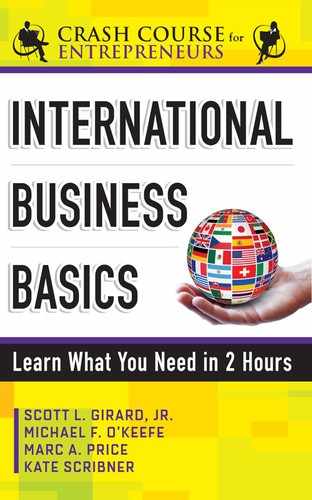Treaties 101
You don’t need to be a diplomat
to be involved with them.
WHAT IS A TREATY, ANYWAY? Think of it as a contract between two or more countries or international organizations. You may find related words like protocols, conventions, and pacts used instead. Treaties document agreements among the parties to do, or not to do, or to obligate themselves to either very specific points or very general guidelines.
The system of international laws that regulates cross-border business is collectively called International Commercial Law. If you plan on buying or selling goods internationally, you should know about the United Nations Convention on Contracts for the International Sale of Goods (CISG; sometimes called the Vienna Convention) and the World Trade Organization (WTO).
United Nations Convention on Contracts for the International Sale of Goods (CISG)
The CISG is the convention for the sale of goods that cross international borders. If you own a US business which makes birdhouses, and you buy all of your materials from Amazon.com, eBay.com or other reputable importers, you don’t need to worry about this. Those merchants have already dealt with all applicable regulations for the materials they resell to you.
There is one thing to keep in mind with the CISG: not all countries abide by it. Because it’s a United Nations organization, only members of the United Nations honor it. If you decide to directly import from or export to another country, make sure you research that country’s regulations adequately. Generally, most countries in Africa, Asia, Europe (Eastern and Western), Latin America, and the Caribbean participate in CISG. The United Nations hosts a website fully dedicated to CISG, also known as UNCITRAL (visit uncitral.org). They provide basic facts about international trade, along with frequently asked questions. The site is currently published in six languages.
The World Trade Organization (WTO) is organized under a treaty, but it functions as more of a centralized record keeper or secretary. It supports international trade and provides a common structure for trade relations between contracting parties. The main objective of the WTO is to consider issues like tariff classifications, product nature, intended use, commercial value, price, and sustain-ability in order to minimize discrimination between imported and domestic products. The WTO has no actual authority to create or enforce trade agreements. All treaties are subject to change at any time by the countries that have signed them. Therefore changes in regimes, government types or controlling parties could potentially affect any trade agreements.
Here are a few more important treaties that could affect your company abroad:
• The North American Free Trade Agreement (NAFTA) creates a trading bloc between the United States, Canada and Mexico, somewhat like the European Union.
• The Kyoto Protocol is an international agreement linked to the United Nations Framework Convention on Climate Change. It sets binding international emission reduction targets.
• The Patent Law Treaty is designed to streamline, harmonize and simplify the formal requirements set by national or regional patent offices in relation to applying for and maintaining patents.
These or other treaties may have specific effects on your business model and/or profitability. You will need to do your homework and perhaps consult the appropriate professionals in relation to your business. Note: In addition to attorneys and tax advisors, there are businesses and consultants who specialize in facilitating international trade.
Protection and free trade
There is an ongoing source of conflict related to international trade agreements. The competing positions are the protection of special industries by the industrialized countries vs. support for completely free trade by the developing nations. The primary industries involved here are agriculture and new technology. The industrialized countries want to protect their domestic agriculture sector through subsidies and tariffs to ensure that their countries will have enough food in the event of a famine or war. The developing countries are pushing for free trade on agriculture because that is a sector in which a developing nation could immediately compete, based on available land and cheap labor.
These conflicts continue into new or high tech industries which the political decision makers view as a future source of income or power. Such industries, e.g., computers or solar power, are often heavily subsidized by governments to ensure they grow within that country, even if they are not profitable. The heavy subsidies make it impossible for developing nations to compete in these sectors.
International business is a very real possibility for many businesses, even tiny start-ups, given today’s globalized market. There is a lot to learn and consider, but by taking the time to think about it and factor it into your business plan, you will be better prepared to identify and develop opportunities in the long run.
S.G. and M.R.M.
